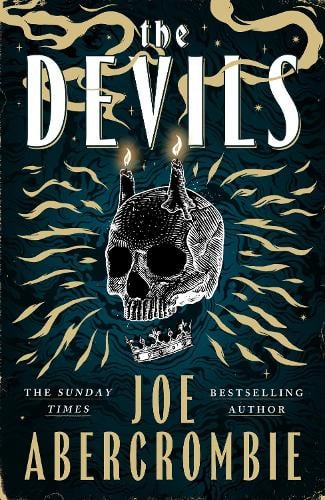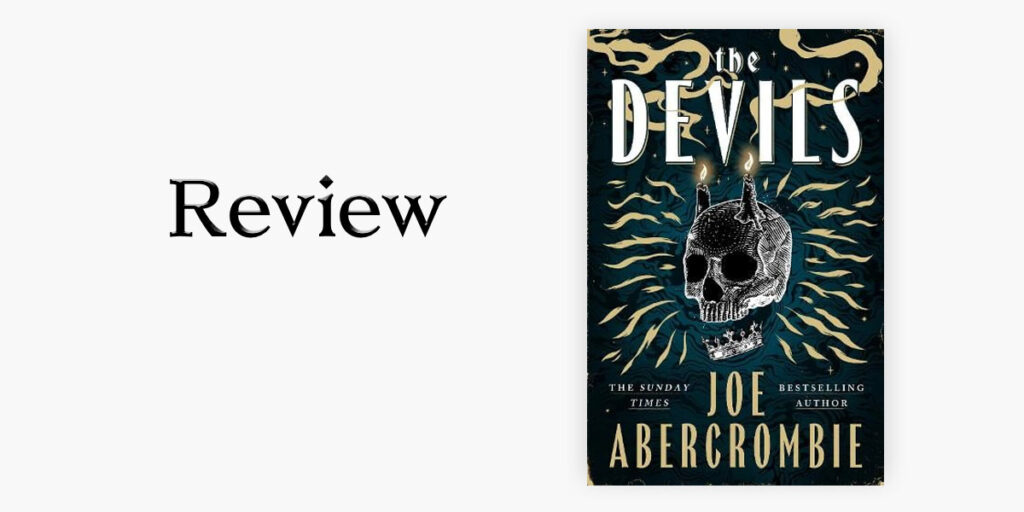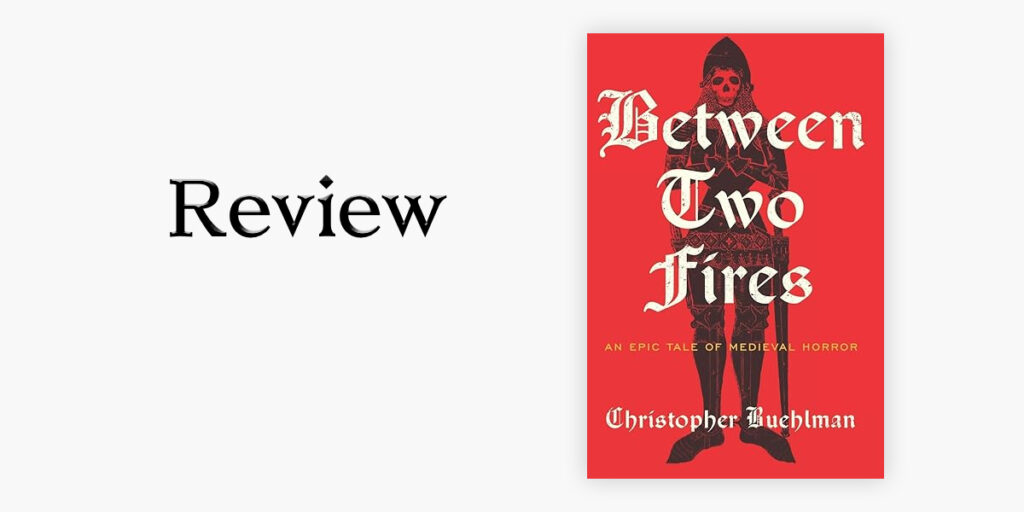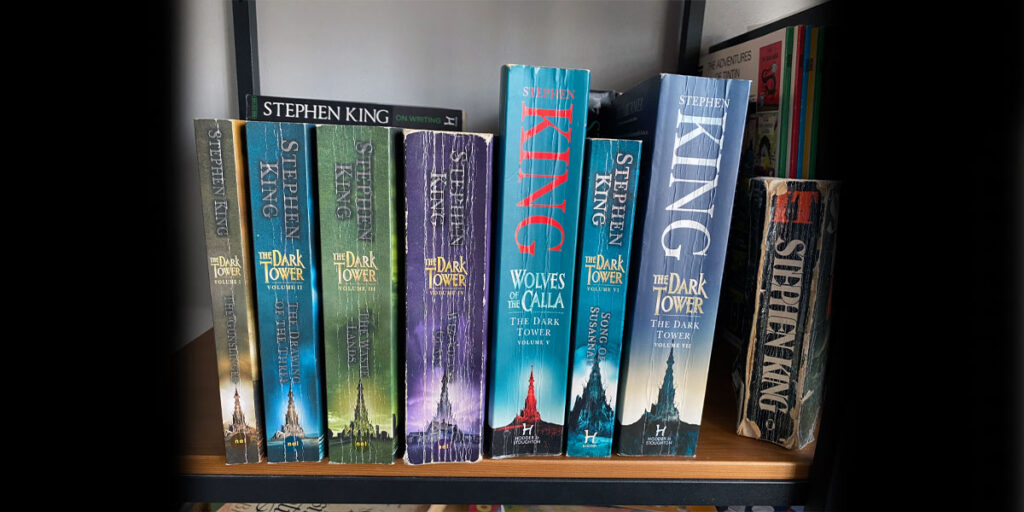Fashionably late (as was the previous book review I posted on here) I have now finally gotten around to reading one of my most anticipated reads in a long time.
For those who don’t know, I am a big fan of Joe Abercrombie (so much so that I even cited one of his books in my “five books that made me” post) and will happily talk to anyone about the strengths (and weaknesses, though—spoiler—I don’t think there are many) of the First Law series or the Shattered Sea books. So, back when The Devils was first announced, suffice to say I—like many other fans of his work—was understandably excited.
Now, there is an inherent danger with so much hype, for any kind of art. Blow a balloon up with enough air and the bang will either be spectacular…or you might let go of the neck too soon and the resulting runaway rubber flatulence will eventually die a mildly pathetic death somewhere in the corner of the room. But, I have been burned before (can you tell?) and I am a notoriously picky reader, so I decided to hang fire on reading The Devils until I was good and ready to do so. Any moodreaders out there will know that doing this can make or break your relationship with a book.
Here’s how mine went with this one.
The set-up
The Devils is an alternate fantasy novel set in Europe, in an era similar to the Middle Ages. The Church is in schism, and a dark threat of returning, bloodthirsty elves hangs heavy over the people of the world.
The Holy Pope—who also happens to be a ten year old girl—may have found a way to bring the two sides of the Church back together by reinstating the rightful heir of Troy to the throne. One who might help bridge the divide and heal their squabbling enough to face the true danger facing all of Europe.
The tricky bit, of course, is getting that heir to their throne—and for that task, Her Holiness turns to her Chapel of Holy Expediency, a lesser-publicised part of the papal fold that isn’t afraid to do what’s necessary, to get a job done.
“When you’re headed through hell, you need the devils on your side”
The eponymous devils are: a knight who can’t die, a pretentious sorcerer (magician), an ancient vampire, a Norse werewolf (“not one of those crappy little German ones, dancing about and wanking at the moon”), an invisible elf, a cunning woman of many talents, the heir to the throne of Troy (plucked from her life as a street-rat thief) and their chosen handler, a priest who didn’t want to be a priest.
Cue, chaos.
The review
If the set-up for The Devils makes it sound like a medieval fantasy retelling of The Suicide Squad then that’s probably because it is 100% a medieval fantasy retelling of The Suicide Squad. Unashamedly so. The members of the Chapel of Holy Expediency are coerced into service through a “papal binding” – and most of the group are resigned to their fate doing the Pope’s bidding, in the same way that DC’s crew of misfit psychopaths know that—should they ever decide to disobey their orders—their lives will be forfeit.
The similarities don’t end there, either. I’m not au fait with DC source material, so my frame of reference here is (both) Suicide Squad movies (the 2016 one and, probably more pertinently, the 2021 “standalone sequel” directed by James Gunn). The most notable cross-pollination into Abercrombie’s novel is the exchanges between members of the team. Quips, barbs, jibes and banter are present in almost every other sentence, and most definitely in every piece of shared dialogue.
When it comes to writing this kind of thing, Joe Abercrombie is one of the best. If you’ve read the First Law books then you know exactly what I mean. There is a dark humour throughout that perfectly compliments the brutal violence and wonderfully offsets the sheer bleakness of the reality his characters are presented with. Among many things, I love that about the First law series.
But with The Devils, this just wasn’t my jam.
Or, perhaps a better way of putting it is that it is my jam, but too much jam is sickly.
I’m not sure the mixed metaphors there totally work, but if they don’t then what I mean is that the constant barrage of quips between the primary characters in The Devils quickly stifled my connection with the book. For me, it strayed from darkly comic to comically dark and I just didn’t gel with it as much as I would’ve liked.
Which is a real shame, because I thought the premise was great, and the introductions to our reluctant priest and our unlikely Empress-in-waiting were brilliant. They were witty and delivered with pace – sharp and blunt in all the right places. Just a few chapters in and I was looking forward to exploring a whole world of this kind of writing.
And we do get to explore. Our heroes (such as they ever can be, in an Abercrombie novel) travel quickly from place to place and set-piece to set-piece. The pace of the book is fast. Noticeably faster than other books by this author are, maybe with the exceptions of the three standlone novels in the First Law series (I’m thinking it probably compares most neatly with Best Served Cold). It makes for easy reading, and entire swathes of the book can be devoured in small sessions. This was perfect for me, because—as well as being notoriously picky with what I read, I am also notoriously slow at reading them).

The introductions to our reluctant priest and our unlikely Empress-in-waiting were brilliant. They were witty and delivered with pace – sharp and blunt in all the right places.
The characters are also a lot of fun to spend time with. Despite my misgivings about all of the, slightly forced, quipping, it will always be hard for me to actively dislike a character created by Joe Abercrombie. His character-work is, in this humble author’s opinion, second-to-none, and there are some fine examples of it in The Devils. Sunny, the invisible elf, is a wonderfully written character with just the right mix of (almost) innocent confusion and detached, canny survivalism, as is Vigga, the brute-force werewolf with a surprisingly tender, uniquely tragic, human streak. The rest of the group are crafted to the same level of brilliance, but in particular what I liked about The Devils is the capacity for these characters to change.
The character of Balthazar Sham Ivam Draxi, for example, seems to be modelled on another Abercrombie favourite from the aforementioned Best Served Cold. In that novel, a crew of dark misfits is brought together to deliver vengeance for Monza Murcatto — one of whom is Morveer, a renowned poisoner and self-aggrandising all-round piece of shit.
Morveer and Balthazar share a huge amount of character traits, and it was impossible for me not to draw the connection between them in the very first scene that I read featuring the latter. But in The Devils, Balthazar actually seemed to develop and change as the story wore on. Maybe Morveer never had that chance in Best Served Cold, but it speaks of yet another string to Abercrombie’s bow that he can introduce a truly dislikable character and then start to question a reader’s formed opinion of them. Don’t get me wrong, it’s not the first time he’s done it (again, see the First Law books) but it’s much more apparent in a book as fast-paced as this one is.
So did I actually like it?
All-in-all, The Devils is a fun fantasy story that is very well-told — albeit I felt that the episodic nature did get a bit repetitive and the twists and turns were a touch predictable.
And, if you haven’t been able to tell from what I’ve written already, my feelings towards the book are mixed and complicated. They can be summarised by this frank—and frankly bizarre—assessment.
I enjoyed the book immensely, but I don’t think I liked it.
Basically, The Devils read too much like a screenplay (understandable, given the fact that Joe Abercrombie has already written several high-profile screenplays and James Cameron;s Lightstorm has already bought the rights to adapting this book) and it’s just not what I’m looking for in a novel. I don’t want to draw parallels with the “Marvel-ification” of consumer-facing art forms, because I don’t think this is that at all — but I do think there’s a veneer to The Devils that feels much less gritty than what I look for.
That being said, I completely understand why The Devils has been a hit. It’s fun, fast-paced, darkly funny and full of the excellent character-work and hard-hitting action set-pieces that we’ve all come to expect from Joe Abercrombie.
It’s the best book I’ve ever read that I don’t like.
📚✌🏻SP
Share this post
Steve Pannett is an author and designer based in Yorkshire, UK.
He writes primarily in the fantasy genre, combining character-led storytelling with epic, gritty world-building to create dark tales with plenty of action and lots of twists along the way.
He has self-published multiple books and is active online.


